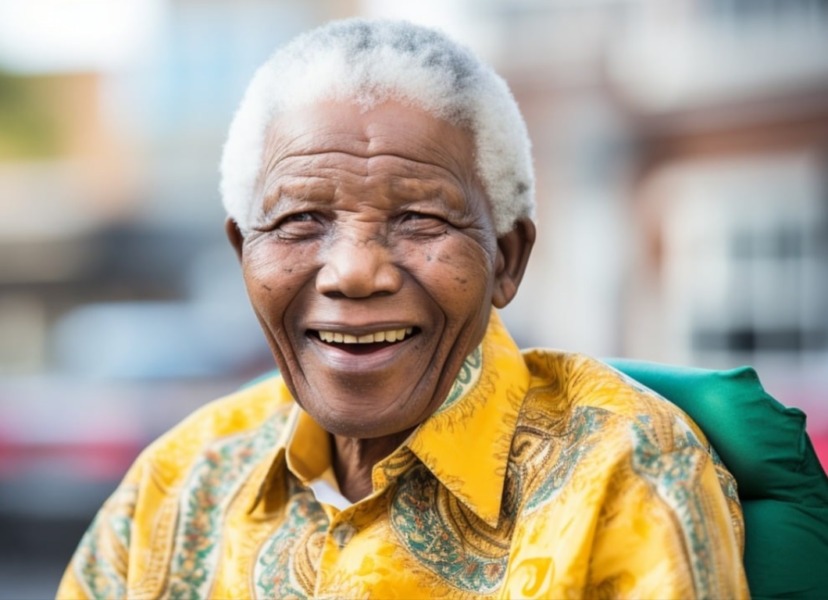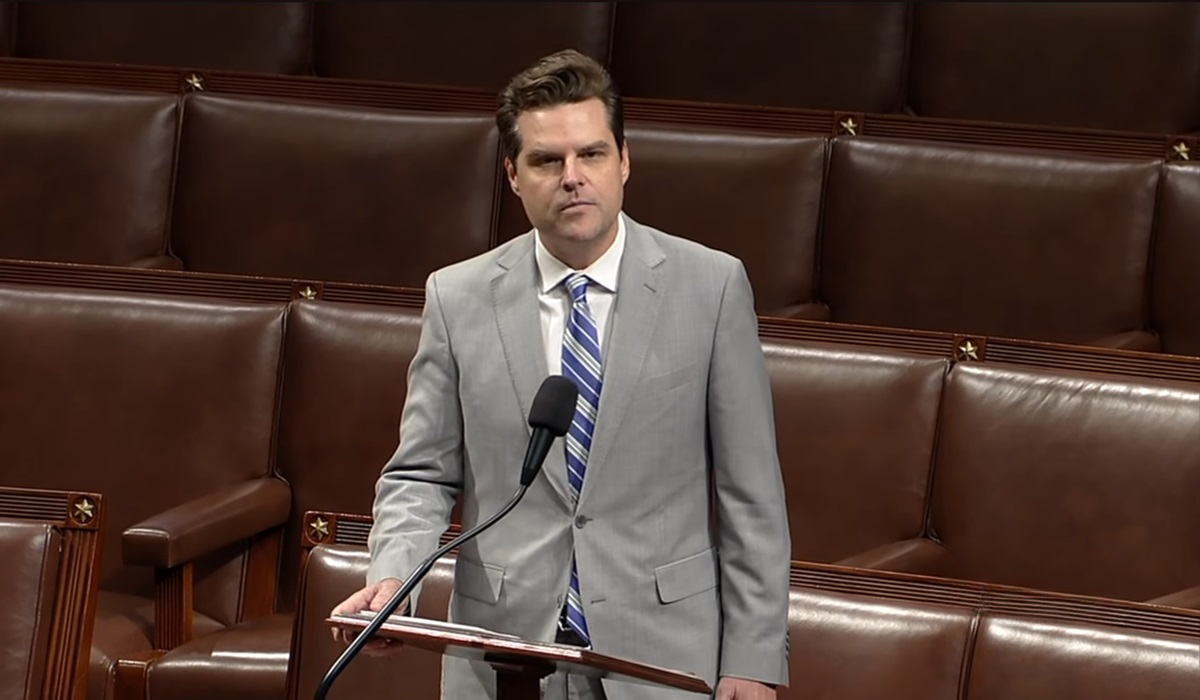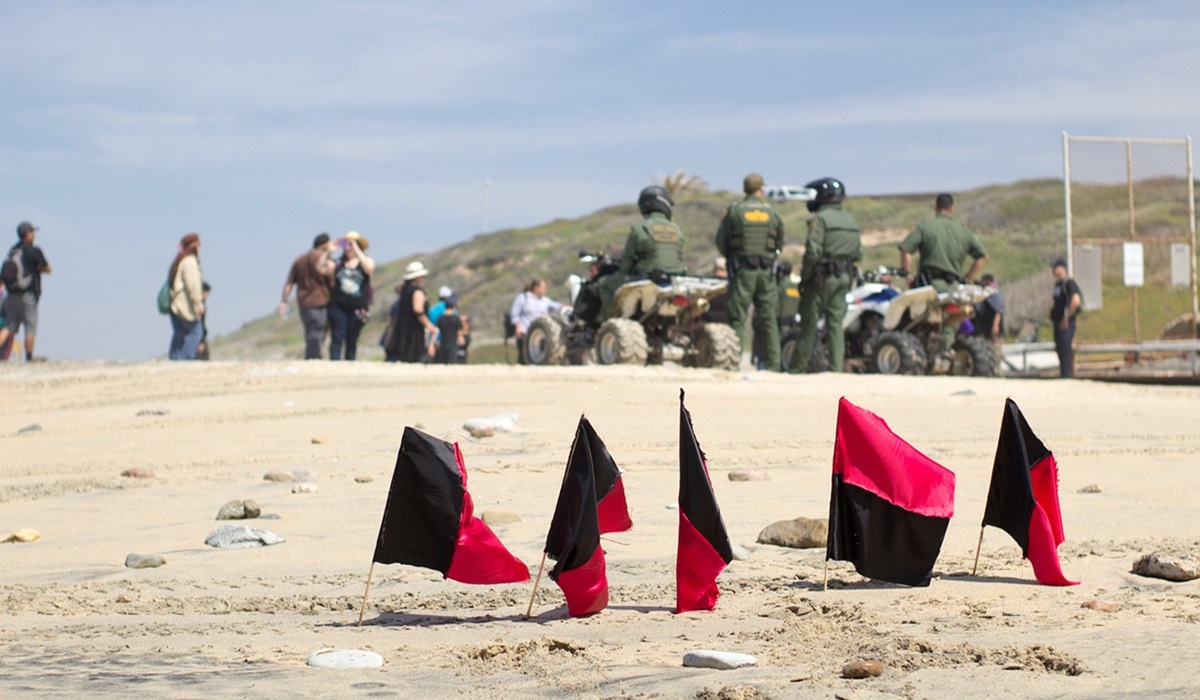Nelson Mandela’s Legacy: A Lesson for World Leaders in the Israel-Palestine Conflict
- TDS News
- Breaking News
- October 16, 2023

In a world rife with conflicts, political analysts, diplomats, and world leaders have often fallen into the trap of defining their enemies and allies in a way that mirrors their interests. The statement by President Nelson Mandela in a 1990 interview with ABC’s Ted Koppel is as relevant today as it was back then: “One of the mistakes which some political analysts make is to think that their enemies should be our enemies.” Mandela’s wisdom remains profoundly significant, especially in the ongoing crisis between Israel and the Palestinian people.
Nelson Mandela’s words carry exceptional weight, given his experience of enduring 27 years in prison within a repressive apartheid system. He emerged from this ordeal with a remarkable ability to look beyond traditional divisions and seek common ground. What makes Mandela’s message so profound is its universal applicability in the face of modern-day geopolitical struggles. Too often, nations form alliances that lead to bullying tactics such as sanctions, which can devastate the countries they do business with if they don’t align with their geopolitical worldviews.
Mandela’s commitment to justice and human rights extended far beyond South Africa. He strongly advocated for a two-state solution in the Israel-Palestine conflict, emphasizing that Israel should stop occupying Palestinian land. What’s striking is that he delivered this message not only to the Palestinian people but also to the people of Israel, reaffirming his dedication to ending the occupation and the suffering of the Palestinian people.
One of the most interesting aspects of Mandela’s governance and interaction with people was his unwavering belief in building a better future for everyone. He did not prioritize one nation over another or deny anyone their rights. His leadership was characterized by the courage to speak out when fellow heads of state were in the wrong. This willingness to provide constructive criticism and hold allies accountable is a quality that seems to be missing in modern diplomacy.
Today’s geopolitical landscape is marred by the tendency of countries to form alliances and overlook wrongs and injustices committed by their allies. This is where Mandela’s wisdom becomes particularly pertinent. Leaders should be able to call out their equivalent when they are in the wrong, irrespective of economic or geopolitical considerations. Blind allegiance only perpetuates suffering, especially in conflict zones like the Israel-Palestine crisis.
The world has witnessed a concerning trend where powerful nations often choose sides not because it’s the right thing to do but because it strategically benefits them. Innocent lives are caught in the crossfire, and the global community remains silent. Innocent children, parents, and entire communities suffer, and the accountability for these actions remains blurred.
“Russia’s attacks against civilian infrastructure, especially electricity, are war crimes. Cutting off men, women, children of water, electricity and heating with winter coming – these are acts of pure terror. And we have to call it as such,” stated EU President Ursula von der Leyen in a 2022 speech about the war in Ukraine. However, a troubling inconsistency arises when the same level of condemnation is not consistently applied to similar actions in the Israeli-Palestinian conflict, highlighting the need for uniform international standards and unwavering condemnation of acts that harm innocent civilians, regardless of geopolitical context.
The Israel-Palestine crisis is one of the most glaring examples of failing to apply Nelson Mandela’s principles. As innocent people on both sides of the conflict suffer, the world seems divided into camps, with little room for dialogue or understanding. This situation leaves little space for nuanced discussion and prompts leaders to take one-sided stands, lest they be labeled terrorists or sympathizers.
Nelson Mandela’s timeless message of unity, peace, and the ability to speak the truth to one’s allies is a lesson that world leaders should heed. The crisis in Israel and Palestine demonstrates the need for leadership that transcends allegiance and prioritizes humanity over geopolitics. As the violence escalates, we must ask ourselves whether the world has genuinely learned from the wisdom of Mandela. The innocent people caught in the crossfire deserve more than the perpetuation of violence, and it is high time world leaders acknowledge this and act accordingly. There is no monopoly on right or wrong, and embracing this truth is essential if we hope to bring peace to the world’s most troubled regions. In the face of profound insights like Mandela’s, the tragedy of perpetuated violence is a disheartening reminder of the urgent need for change.








